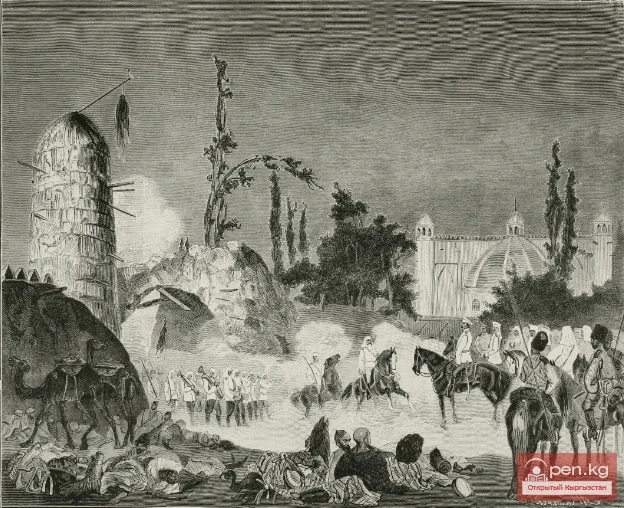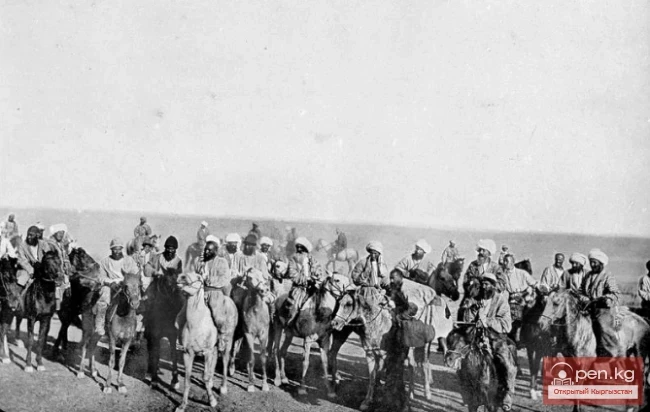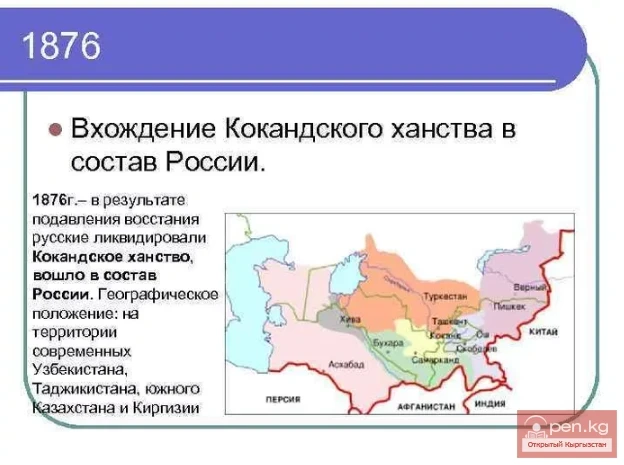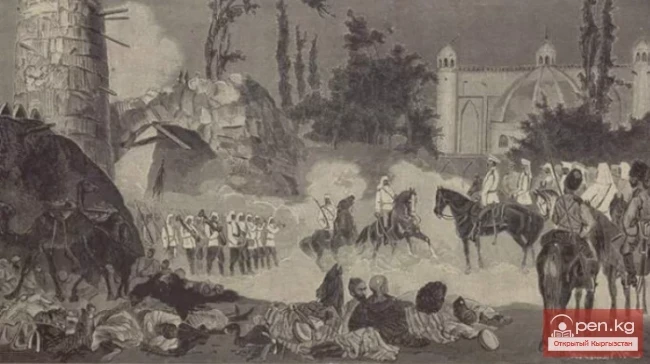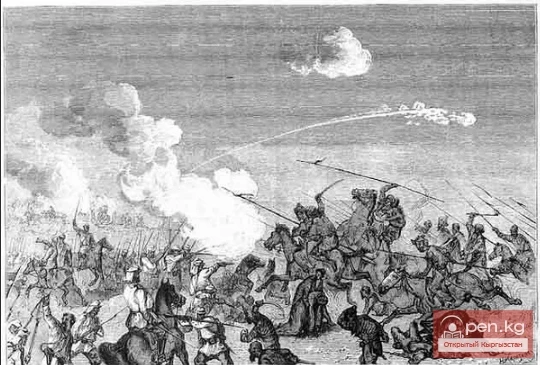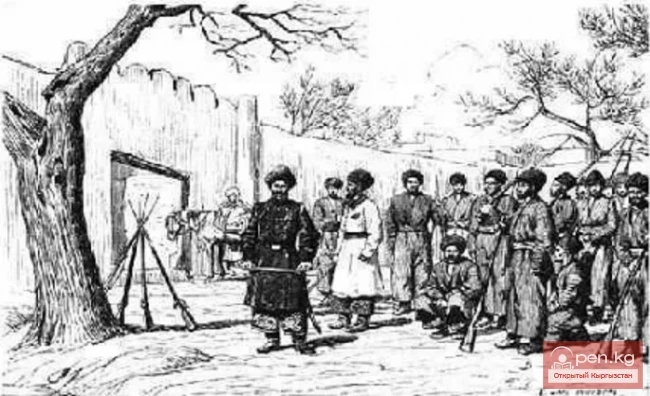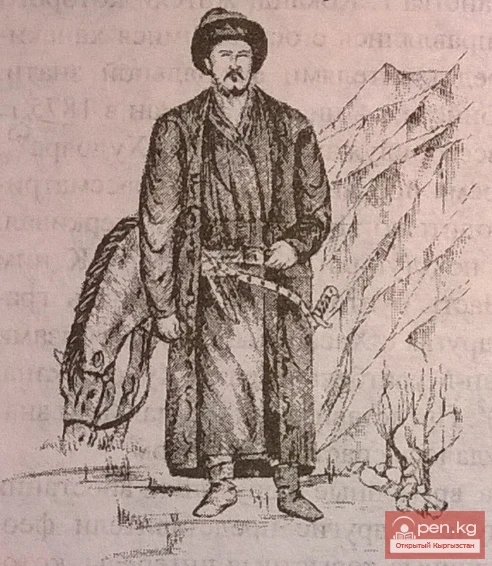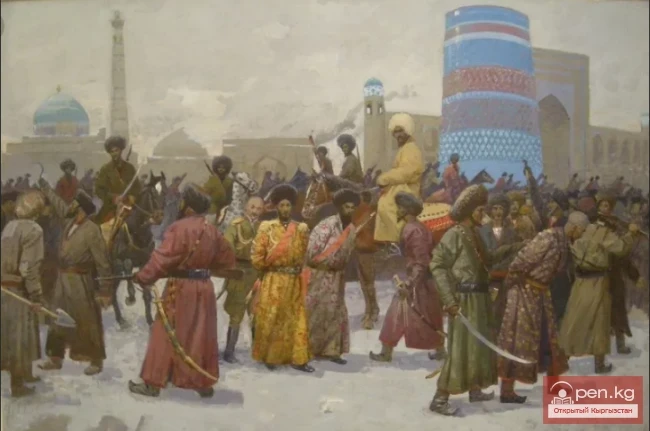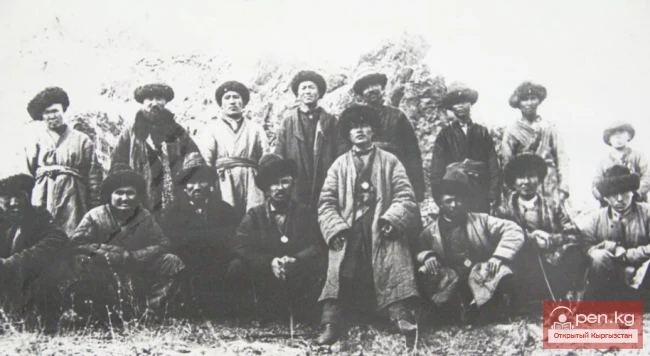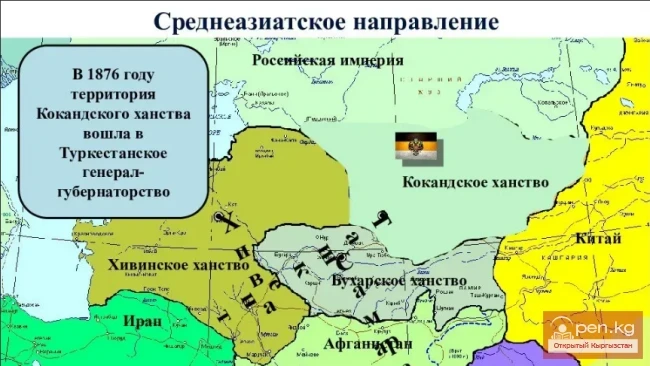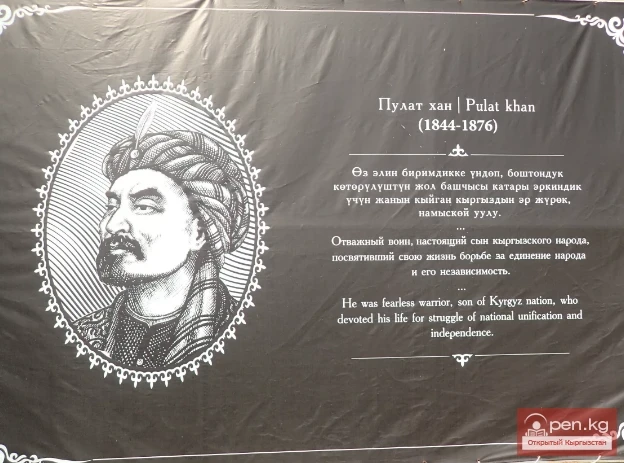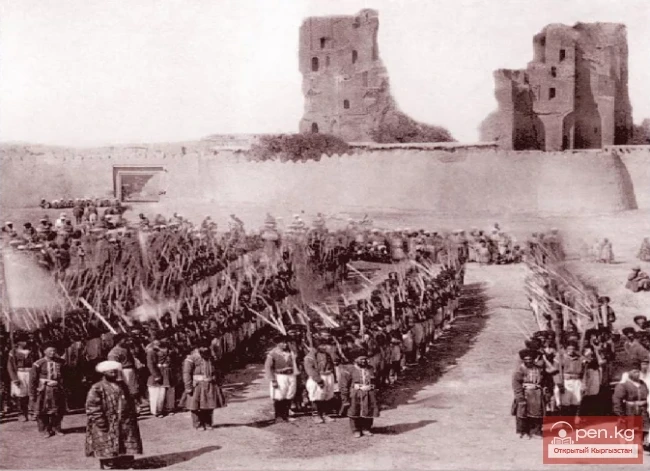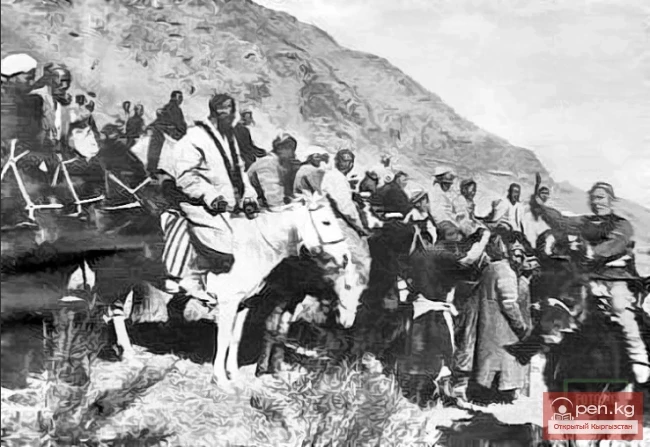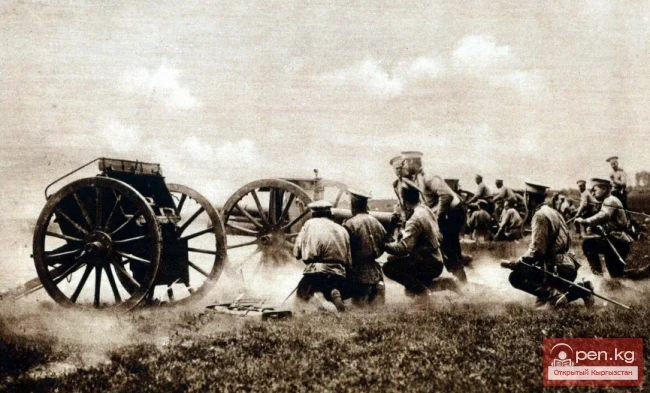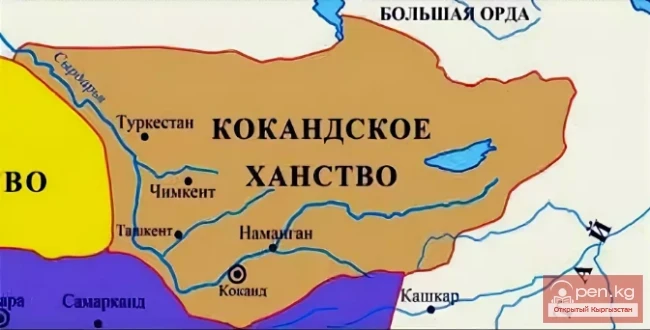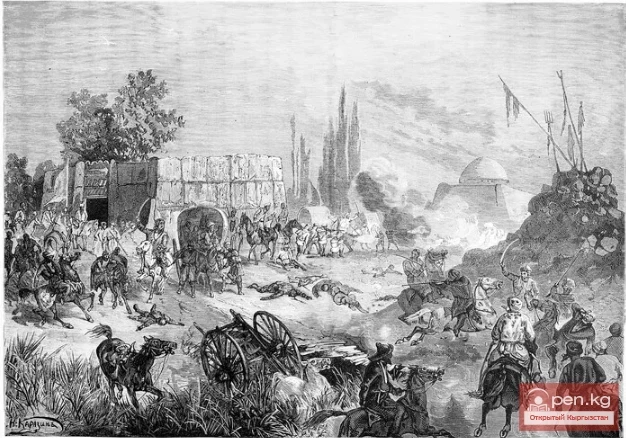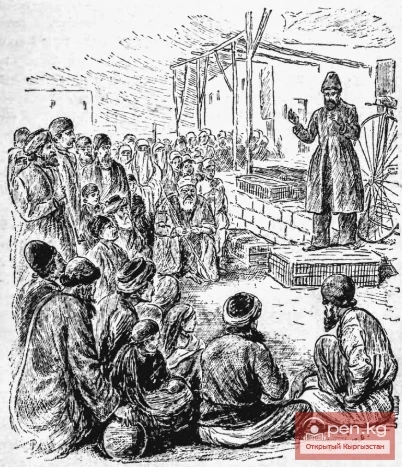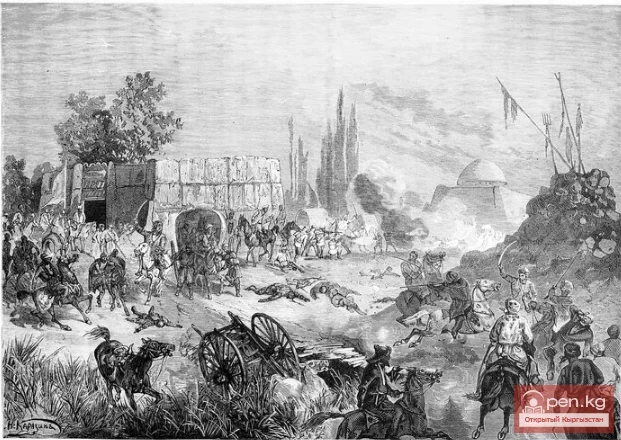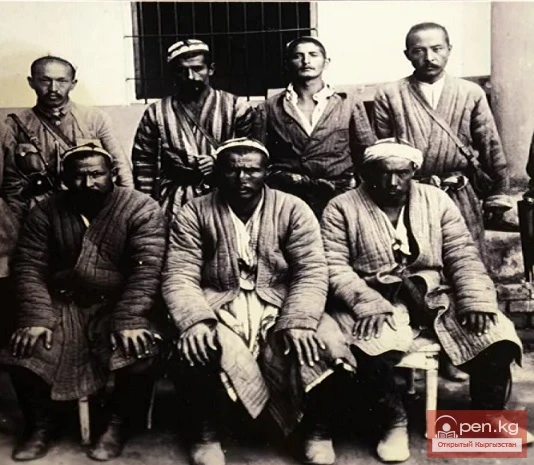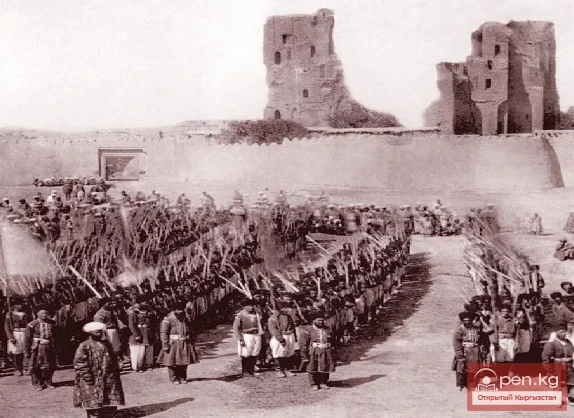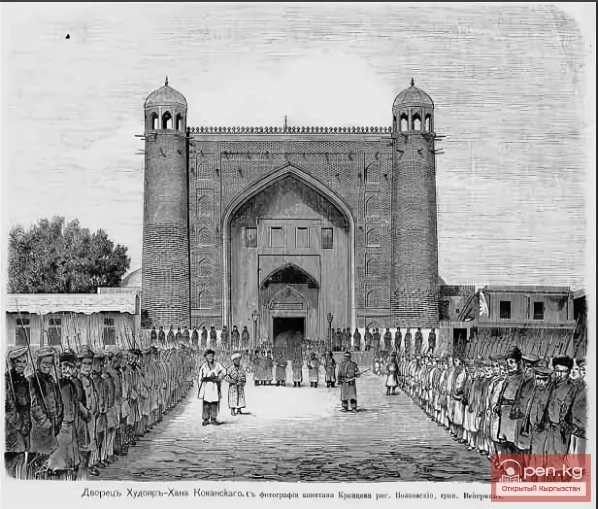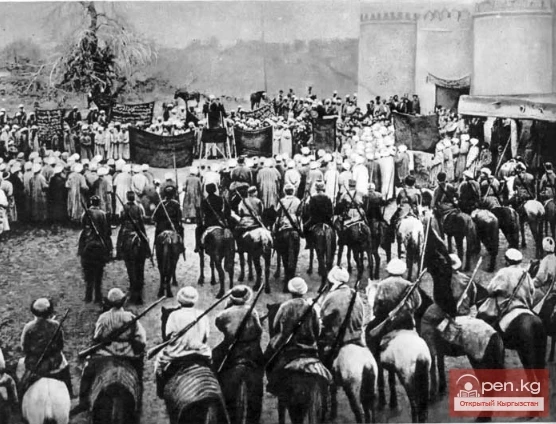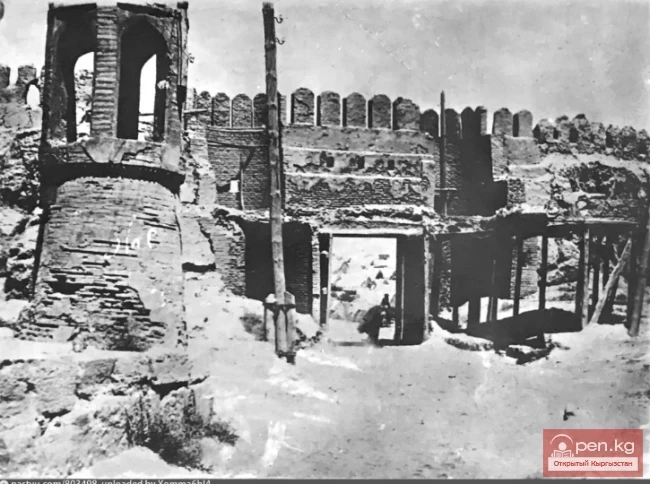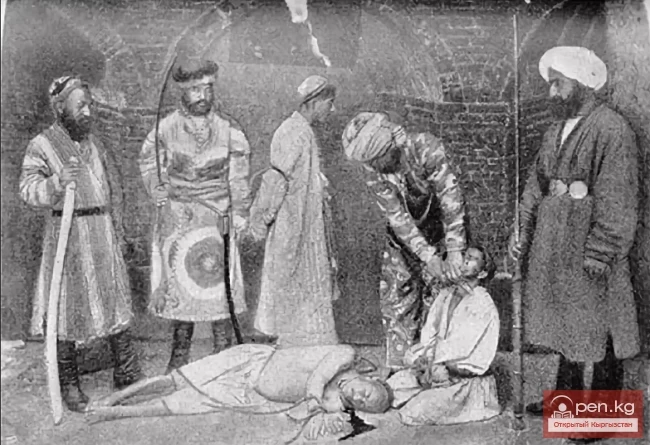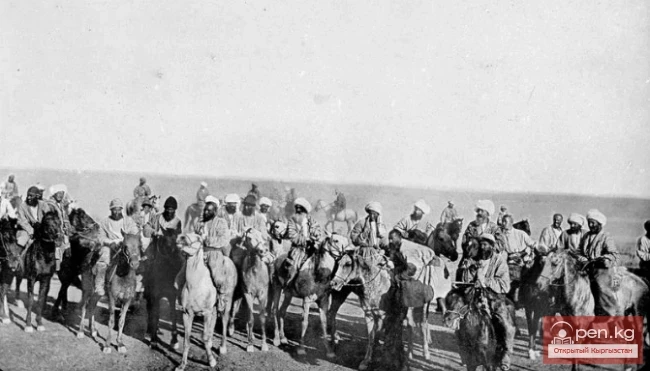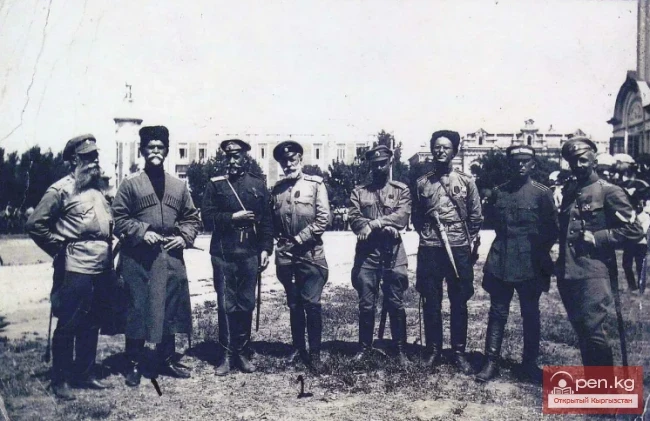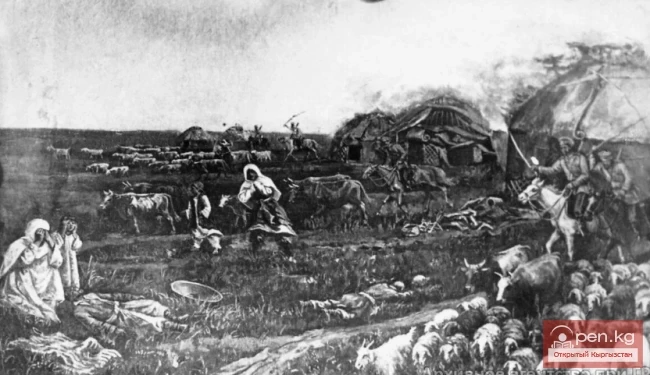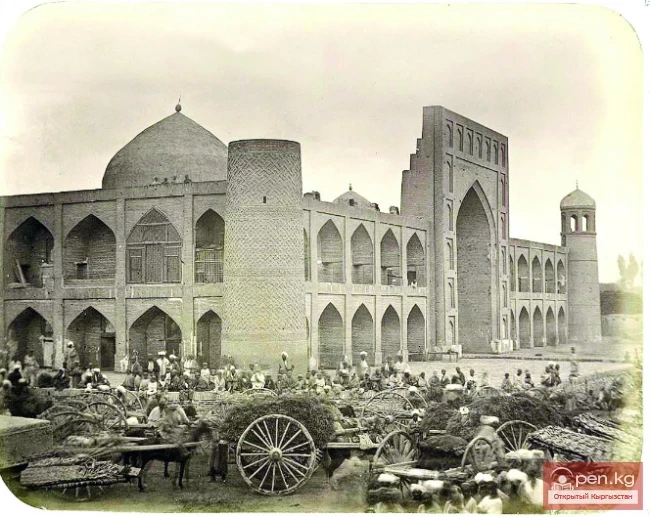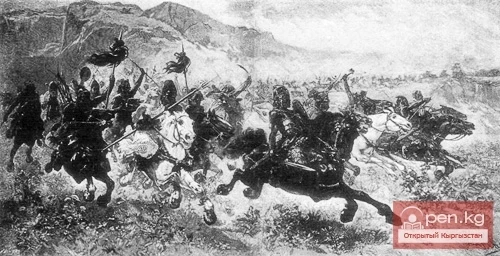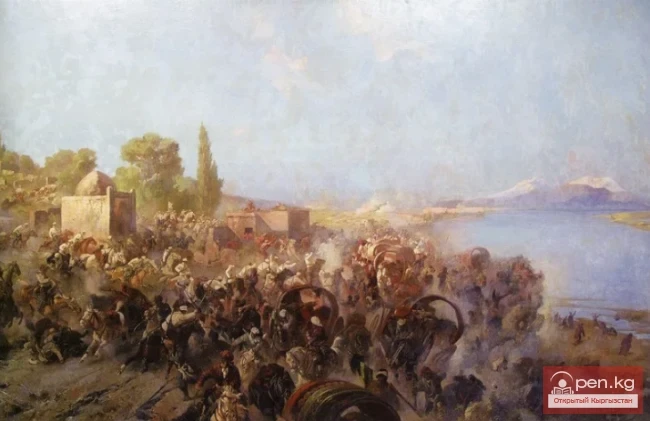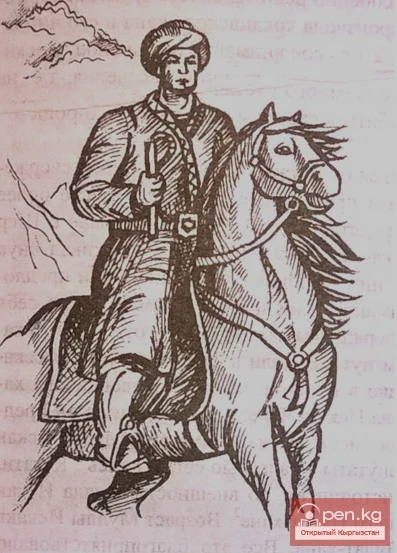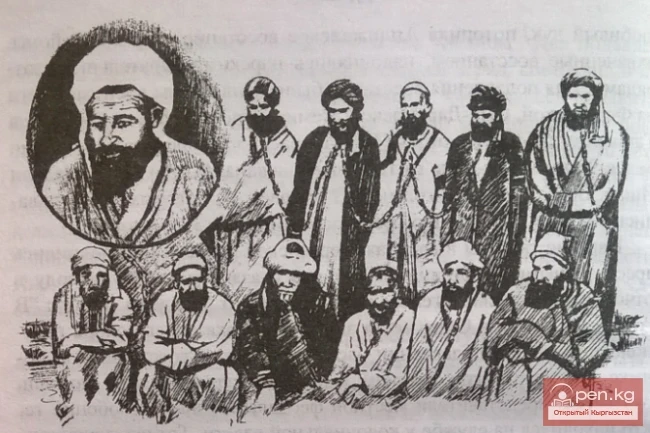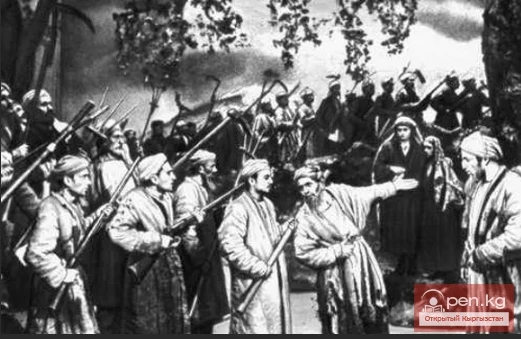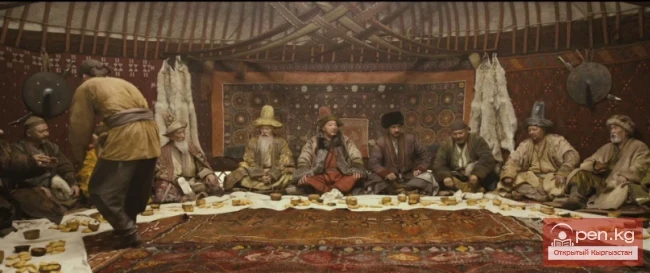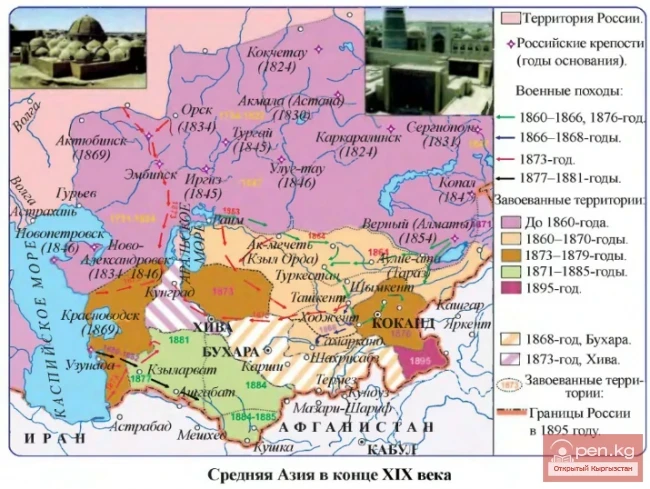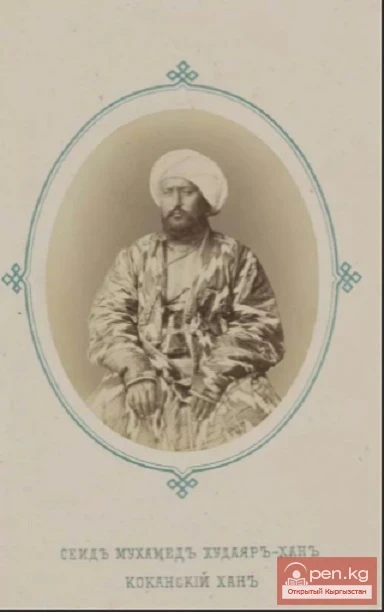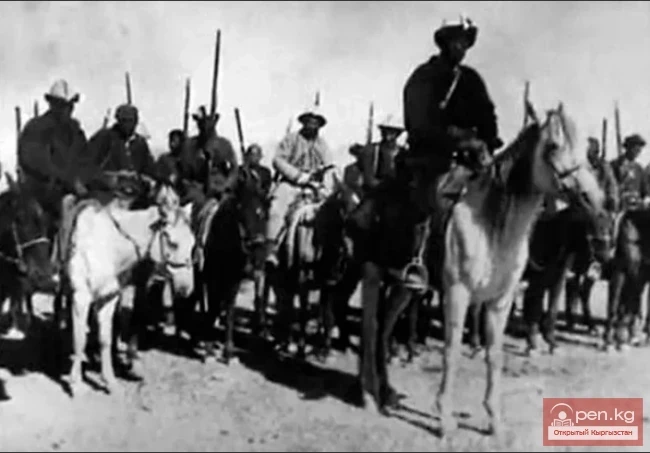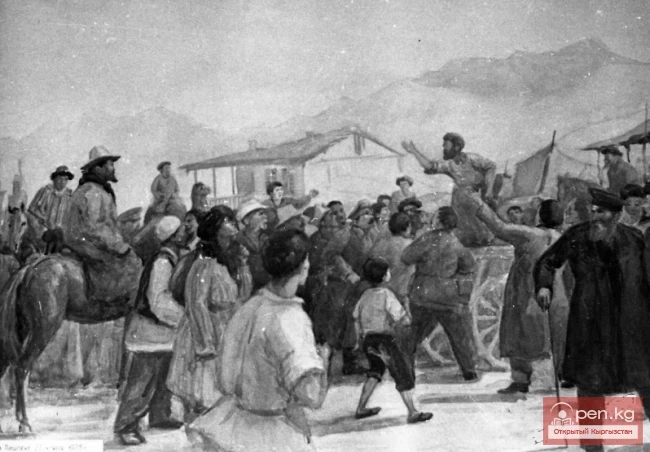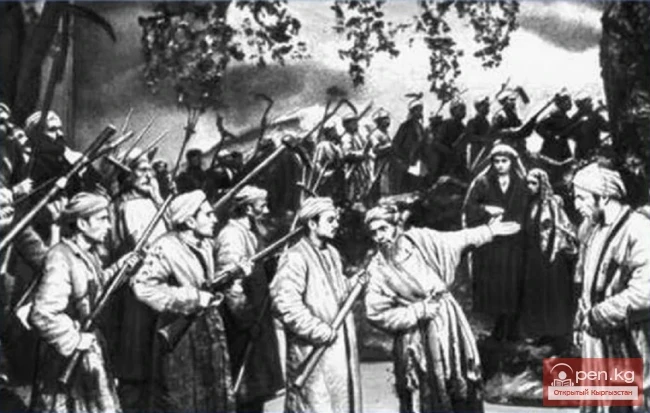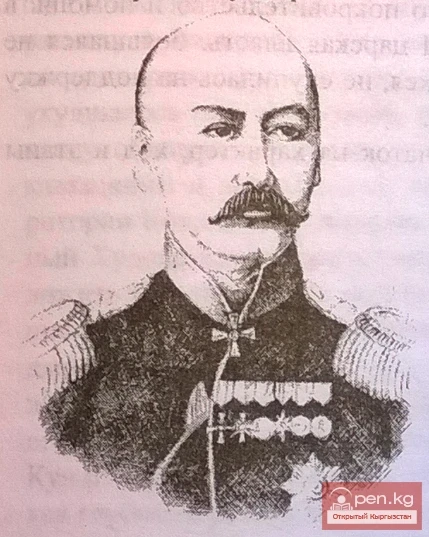
Orientation of the Uprising Kyrgyz Workers Towards Russia
The Kyrgyz workers, fighting against the dominance of the Kokand Khanate, saw that the forces were unequal and that external help was necessary. Therefore, they sought protection, support, and assistance from Russia, expressing a desire to accept Russian citizenship. For this purpose, the participants of the uprising repeatedly appealed to the Russian authorities but could not achieve a positive response.
The orientation of the rebels towards Russia and their sympathies for the Russian people is vividly evidenced by the fact that thousands of rebels with their families, fleeing from the atrocities of the khan's punitive detachment, moved to those areas that were part of Russia. Thus, after the defeat at Khanabad in the summer of 1873, 1,700 yurts of the rebels migrated to Ketmen-Tyube and Toguz-Toro in the Tokmak district. In the autumn of the same year, 800 (according to some sources, more than 1,000) families of the rebellious Kyrgyz relocated from the southeastern Andijan province to the Auliye-Ata district.
However, in the spring of 1874, at the request of Khudoyar Khan, the tsarist administration returned these refugees back to their former places of residence in the khanate. As expected, upon their return to their native lands, "they were plundered" by the khan's soldiers led by Akhmedbek Batyr Bash. Therefore, some of the rebels, trying to find refuge within Russian borders, returned again to the Tokmak district. But they were not allowed to stay there for long.
In general, the tsarist colonial authorities gave negative responses to all requests from the rebellious Kyrgyz, both for assistance and protection and for acceptance into Russian citizenship. This is explained by the fear of the tsarist authorities of a popular uprising, which was then occurring in the territories of the Kokand Khanate and could be directed not only against feudal-khanist oppression but also against its patron and protector—the government of Russia. The relatively small military forces of the colonial authority were literally overwhelmed by the mass of the population of Central Asia and Kazakhstan. This is why the efforts of the colonial authority were directed towards supporting the Kokand Khan in suppressing the uprising in question. This is eloquently illustrated by the fact that the Turkestan Governor-General Kaufman was sincerely pleased to receive news of the successes of the khan's punitive detachment over the rebels. He hastened to congratulate the Kokand Khan on his victory. Here is what he wrote in his letter addressed to Khudoyar Khan on October 8, 1874: "I was very pleased to learn that the unrest and disorder in your country seem to have completely ceased. I sincerely wish that such a situation does not occur again."
It should be noted that during this period, the tsarist power desired a situation in which the Kokand Khanate, while maintaining the appearance of "independence," would essentially be a colony of Russia. To achieve this goal, the tsarist government relied on Khudoyar Khan, who became, in fact, a puppet in the hands of the Turkestan Governor-General. This, in fact, explains the hostility of the colonial authority towards the rebels and its support for Khudoyar Khan and his feudal elite.
In turn, Khudoyar Khan and his close associates, seeing the strength of tsarist Russia, reached out to the Russian autocracy in order to maintain their dominant position within the khanate. This is explained by the fact that the khan feared the growing struggle against his authority from the working masses of the subjugated Uzbeks, Kyrgyz, and Tajiks. On January 29, 1868, Khudoyar Khan was forced to sign a trade agreement proposed to him by the Turkestan Governor-General von Kaufman.
This agreement effectively placed the Kokand Khanate under the dependency of the tsarist government, making its ruler a vassal of the Turkestan Governor-General. This is evidenced by a note published in the pages of the contemporary newspaper "Russian Invalid," which states: "Khudoyar Khan understood that his existence entirely depended on Russian power, and therefore he reports on his actions, both external and internal, to the Turkestan Governor-General and seeks his consent." He tried in every way to show servile loyalty to his patron—the colonial authority, obediently fulfilling any of its wishes. In 1869, for these merits, the khan was awarded the title of "Highness" and the Order of Stanislaus of the 1st class with a diamond star. However, the Kokand Khan valued not the awards of the tsarist government, but its protection and assistance in suppressing popular uprisings. And the tsarist authority, fearing the workers' protests no less than the khan, was generous in its support and assistance to him in this case.
All this had an impact on the character, course, and stages of the studied uprising.
Features of the First Stage of the Kyrgyz Uprising 1873—1876.
